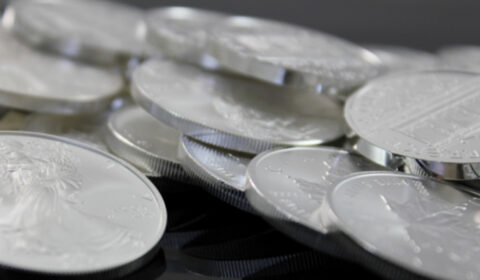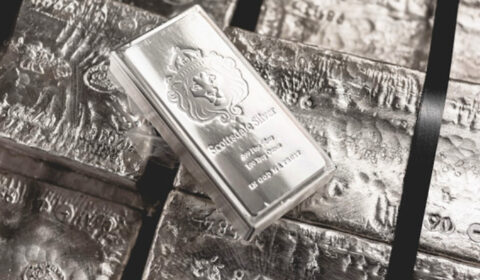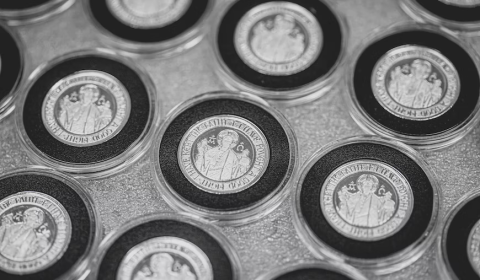Gold The Ultimate Store Of Wealth
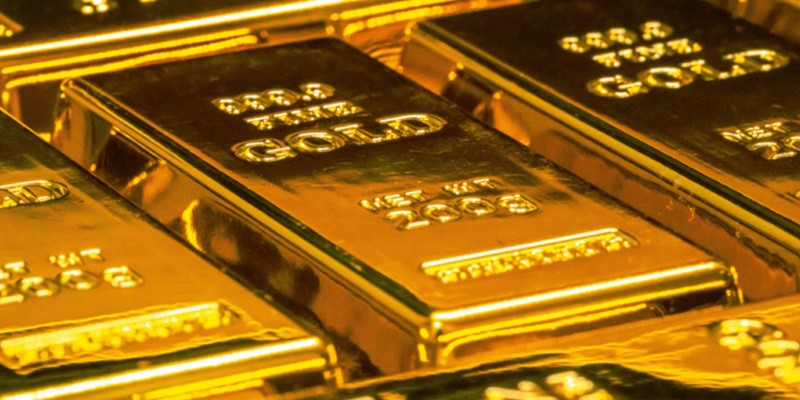
The following article is created by Orion Metal Exchange for the benefit of our investors and perspective investors alike. We seek to provide relevant content concerning precious metals and the impact caused by the economy and geopolitical trends that will most likely place impact on your financial future. If you are interested in learning about precious metal investing, call 1-800-559-0088, for a FREE investor kit.
Gold cannot be burned or destroyed. Gold is resistant to chemical attack and no natural substance exists on earth that can destroy gold on a molecular level. This is why world powers throughout history have continued to utilize gold as a basis for commerce and trade. Gold is stockpiled by central banks and governments to hedge against debt and inflation. Gold is also viewed as an indicator of a government’s economic health.
GOLD PROPERTIES
Before moving forward, let’s review what makes gold valuable. Gold and platinum group metals are known as noble metals. Noble metals are simply resistant to chemical action, do not corrode, and are not easily attacked by acids.
This means gold will not corrode when placed in moisture. It also has a highly reflective surface which causes its lustrous appearance. For these reasons, gold is used in a variety of applications like electronics, dental fillings, jewelry, etc.
The reason gold is so valuable is because of its scarcity. According to USGS, you can fit all the gold discovered in a 28-meter-wide cube.
Gold is a highly desirable metal with the time proven ability to maintain or improve its value over time. The shiny yellow metal is becoming more often regarded as a hedge against market volatility and geoeconomic uncertainty. Once you understand gold’s rarity and resilient aspects, it’s easy to understand why gold has been used as a store of wealth for thousands of years. Gold is a way to invest away from debt encumbered investment instruments without the risks of physical erosion or decay of your wealth over time.
WHY IS GOLD SPECIAL?
Before answering, let us study some properties of gold that make the yellow metal so special.
- Gold is ductile and malleable, which makes it extremely versatile.
- Gold’s melting and boiling points are extremely high. Gold boils at 5173 F. Its melting point is 1947.5 F, which is not easily achievable.
- Gold is a great conductor of heat and electricity.
- Gold will never get rusty, and it isn’t easy to corrode it either.
- Gold is a non-reactive metal since it is a noble metal.
- Pure gold is tasteless and odorless.
- Gold is used in several electronics, medicines, wiring, etc.
- Pure gold is 24 karats. 18 karat gold is 75% pure. 14 karat gold is 58.5% pure.
CAN GOLD BE DESTROYED?
According to the scientific facts, it can be stated that pure gold is virtually indestructible. Gold doesn’t rust or corrode, and it’s unaffected by fire. This answers why gold is repeatedly melted, reprocessed, and recycled.
Only nuclear processes have the chance to destroy gold; however, it can be dissolved by aqua regia, a combination of powerful nitric acid and hydrochloric acids. When we dissolve gold, it transforms into more dispersed gold particles.
When gold is exposed to acids, it doesn’t melt. It’s unaffected by hydrochloric acid, and nitric acid is exclusively used to clean it. Nitric acid also serves as a tool for determining if the gold is genuine. When nitric acid is added to most gold impersonations, they melt. If you acquire non-investment grade gold frequently, you may want to consider a gold testing kit to verify purity.
CAN GOLD BE DESTROYED COMMERCIALLY?
Whether gold can be commercially destroyed or not is yet to be seen. Currently, there’s no chance of destroying gold’s market value. This rare metal withstands inflation and generally gains value in time of war, geopolitical unrest, or geoeconomic uncertainty. The properties of gold, its resilience, and its economic value, are why investors, central banks, and governments continue to stockpile the yellow metal.
Fortunately, gold being indestructible is a good thing. There would be devastating consequences for the economy if gold were to disappear, evaporate, or erode. Some electronic devices would no longer be manufactured. Similarly, there would be no effective treatments for diseases like arthritis and cancer. This precious metal is the ultimate currency and store of wealth.
GOLD CAN ONLY BE DISSOLVED, BUT NOT DESTROYED
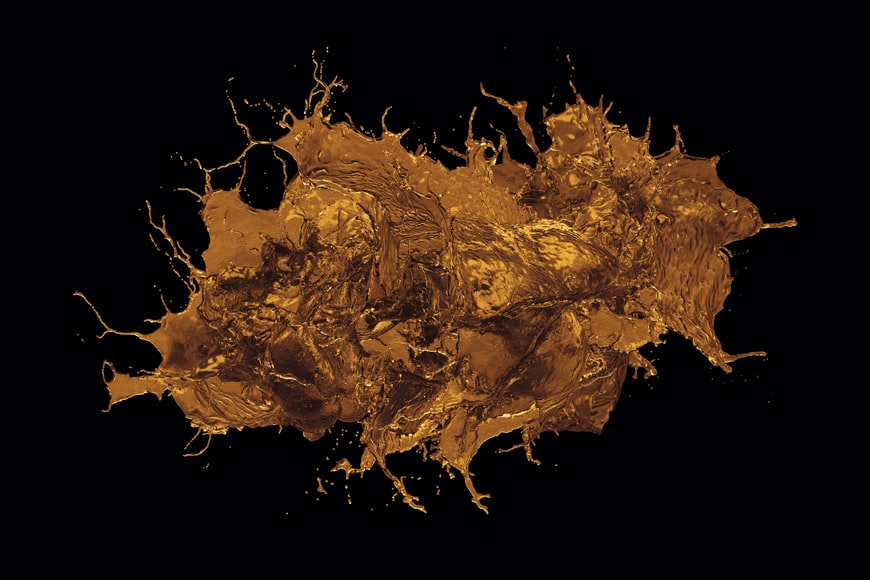
Most gold imitations melt when mixed with nitric acid. However, gold neither reacts to nitric acid nor hydrochloric acid. The only solution that can dissolve this precious metal is Aqua Regia. It is a mixture of hydrochloric and nitric acids in a ratio of 3:1. Even in a dissolved state, the particles of gold remain widely dispersed. You may dump the solution down the sink or mix it with more water, but gold will always transform into its original solid form. In this context, gold will last forever. Scientists and physicists have studied gold for thousands of years, and yet this is how close they’ve come to destroying this metal without using nuclear reactions.
SO, SHOULD WE INVEST IN GOLD?
After knowing some facts about gold and learning about its indestructibility. Should we turn our minds towards buying gold? Let’s discuss.
Gold tends to maintain its value throughout a long period. Financial analysts say that the gold price is not indicative of its worth, which implies that even if the gold price falls, the real value of gold remains unchanged. Furthermore, as inflation begins to take hold, gold’s value rises. As the value of the currency falls, the price of gold rises.
Diversifying in gold eagle coins can potentially stabilize your portfolio when geoeconomic uncertainty is present. Precious metal coins have an inverse relationship to stocks and other paper assets, which is why many investors invest in gold or silver. Precious metals IRA accounts are often utilized by investors to hedge and diversify against the long-term effects of inflation.
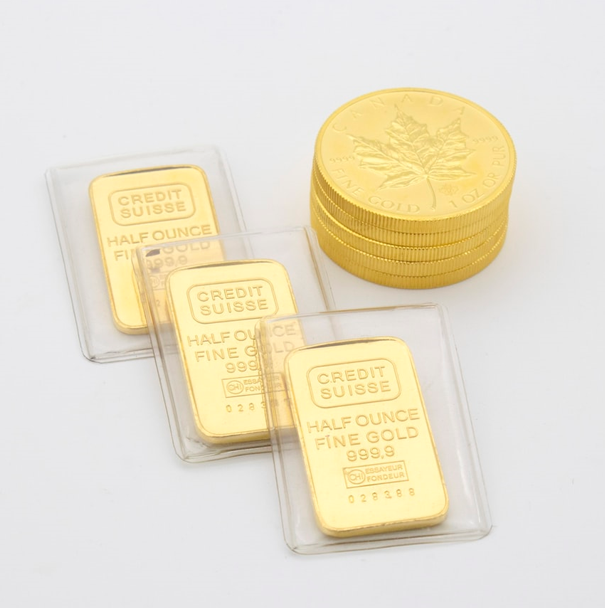
FAQ: Your Key to Understanding!
Why is gold considered the ultimate store of wealth?
Gold is considered the ultimate store of wealth due to its intrinsic value, scarcity, and historical role as a reliable hedge against economic uncertainty. Its enduring appeal spans centuries, making it a timeless asset for preserving wealth in times of market volatility.
How can incorporating gold into an IRA contribute to wealth preservation and retirement planning?
Incorporating gold into an IRA can bolster wealth preservation and retirement planning by diversifying the portfolio, mitigating risk, and providing a hedge against inflation and market downturns. Gold’s intrinsic value and historical performance offer a tangible asset to safeguard against economic uncertainties, thereby enhancing long-term financial security.
What educational resources does Orion Metal Exchange offer to help investors make informed decisions about gold investing?
Orion Metal Exchange provides educational resources to help investors make informed decisions about gold investing. These resources include informative articles, comprehensive guides, and personalized consultations with experienced account representatives. Orion Metal Exchange empowers investors to navigate the precious metals market confidently and effectively. Plus, claim your Free Investor Kit today for essential insights into gold investing with Orion Metal Exchange.
LEARN MORE ABOUT GOLD INVESTMENT
Orion Metal Exchange presents this article for both our investors and perspective investors, offering insights into precious metals and their relevance amidst economic and geopolitical trends. To explore precious metal investing further, dial 1-800-559-0088 for a FREE investor kit.
Contact us today to know more about our services.


